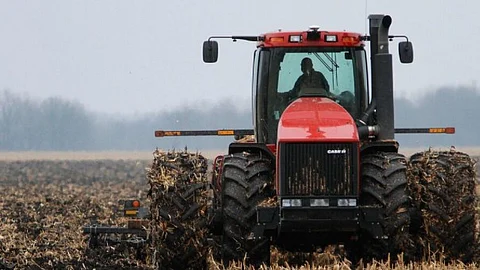

Consultations on Agriculture Canada’s Sustainable Agriculture Strategy (SAS) will continue despite six major farm groups withdrawing from the discussions.
The Canadian Canola Growers Association, Canola Council of Canada, Cereals Canada, Grain Growers of Canada, Pulse Canada, and Soy Canada announced on December 16 that they would no longer participate in the strategy’s advisory committee.
They argued that the plan does not align with producers needs.
The groups said that Canadian agriculture is already the most sustainable in the world.
They called for a practical, science-based approach that benefits the entire sector and the environment.
“Together, we have consistently voiced that there is a lack of industry alignment regarding the targets and actions proposed in the SAS. As a result, we have collectively decided to step back from the advisory committee, as the strategy’s direction does not fully represent the interests of our members,” the groups said in a statement.
The strategy aims to balance environmental sustainability, profitability, and competitiveness.
Consultations began two years ago, but a final plan has yet to be released.
Annie Cullinan, spokesperson for Agriculture Minister Lawrence MacAulay, said the government remains committed to the strategy.
“It’s deeply disappointing that these organizations have chosen to step away from this important initiative,” said Cullinan.
“Every opportunity was taken by Minister MacAulay to ensure the voices of grain and oilseed farmers would be heard loud and clear in the strategy. We will continue to work hand in hand with farm groups who believe in the importance of improving environmental sustainability in Canadian agriculture.”
Cullinan added that climate change poses significant threats to farmers, and customers increasingly demand sustainable products.
The farm groups emphasized that they will continue working with the government on issues such as market access, research, innovation, and supply chain resiliency.
The development comes during a period of political instability.
On December 16, former finance minister and deputy prime minister Chrystia Freeland resigned unexpectedly, sparking concerns about the federal government’s direction.
Freeland stepped down just hours before delivering the fall economic statement.
Farmers had anticipated potential measures on extended interswitching and capital gains in the statement, which was tabled later without her speech.
The same day, Canada’s premiers met in Ontario to address U.S. President-elect Donald Trump’s proposed 25% tariffs on Canadian goods.
Alberta Premier Danielle Smith and Saskatchewan Premier Scott Moe both called for a federal election, arguing a prime minister with a renewed mandate would have stronger negotiating power with the U.S.
Parliament is set to rise for the holidays on December 17 and return on January 27.
Amid the political uncertainty, whether the Sustainable Agriculture Strategy will move forward at all is questionable.
